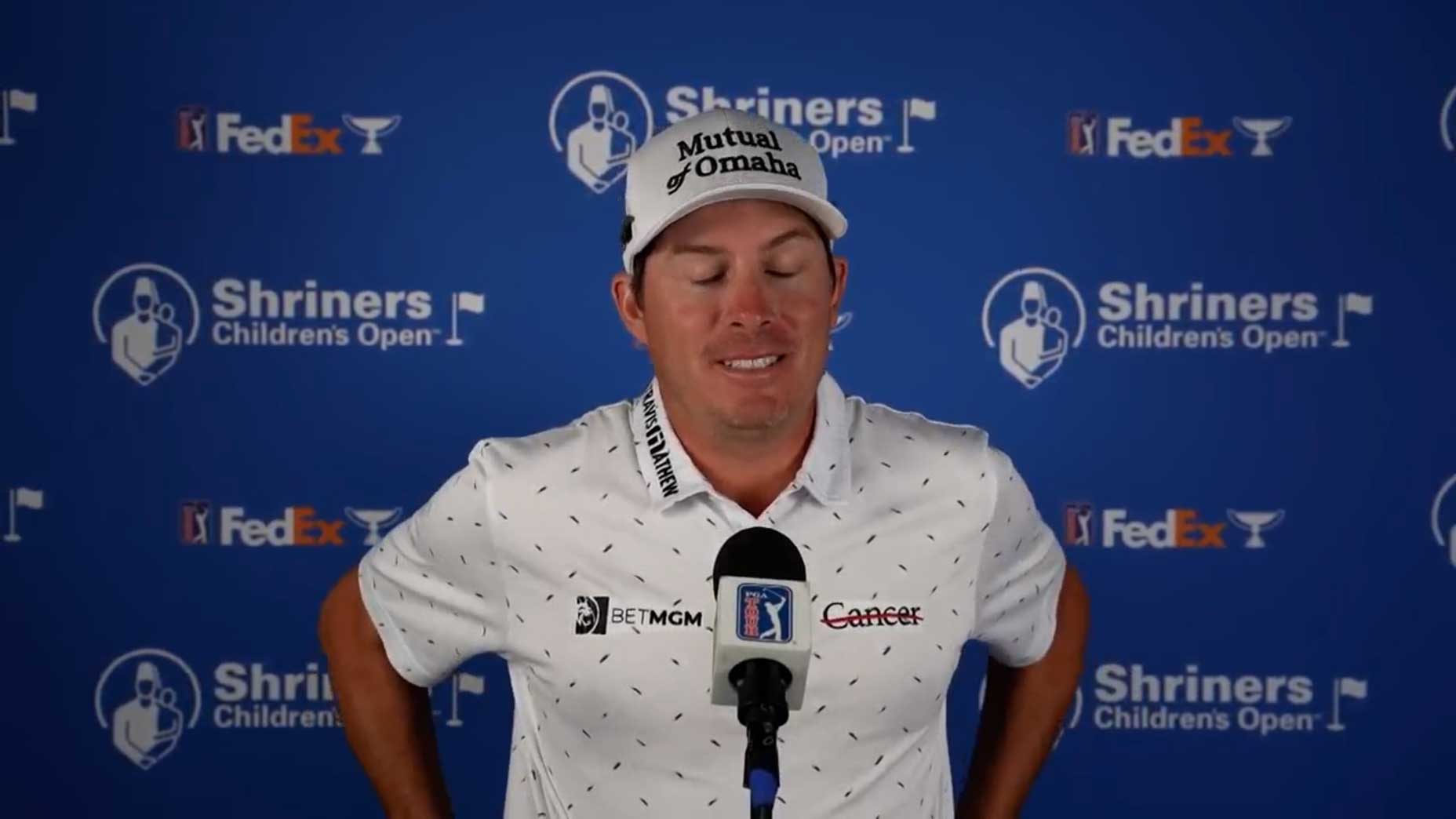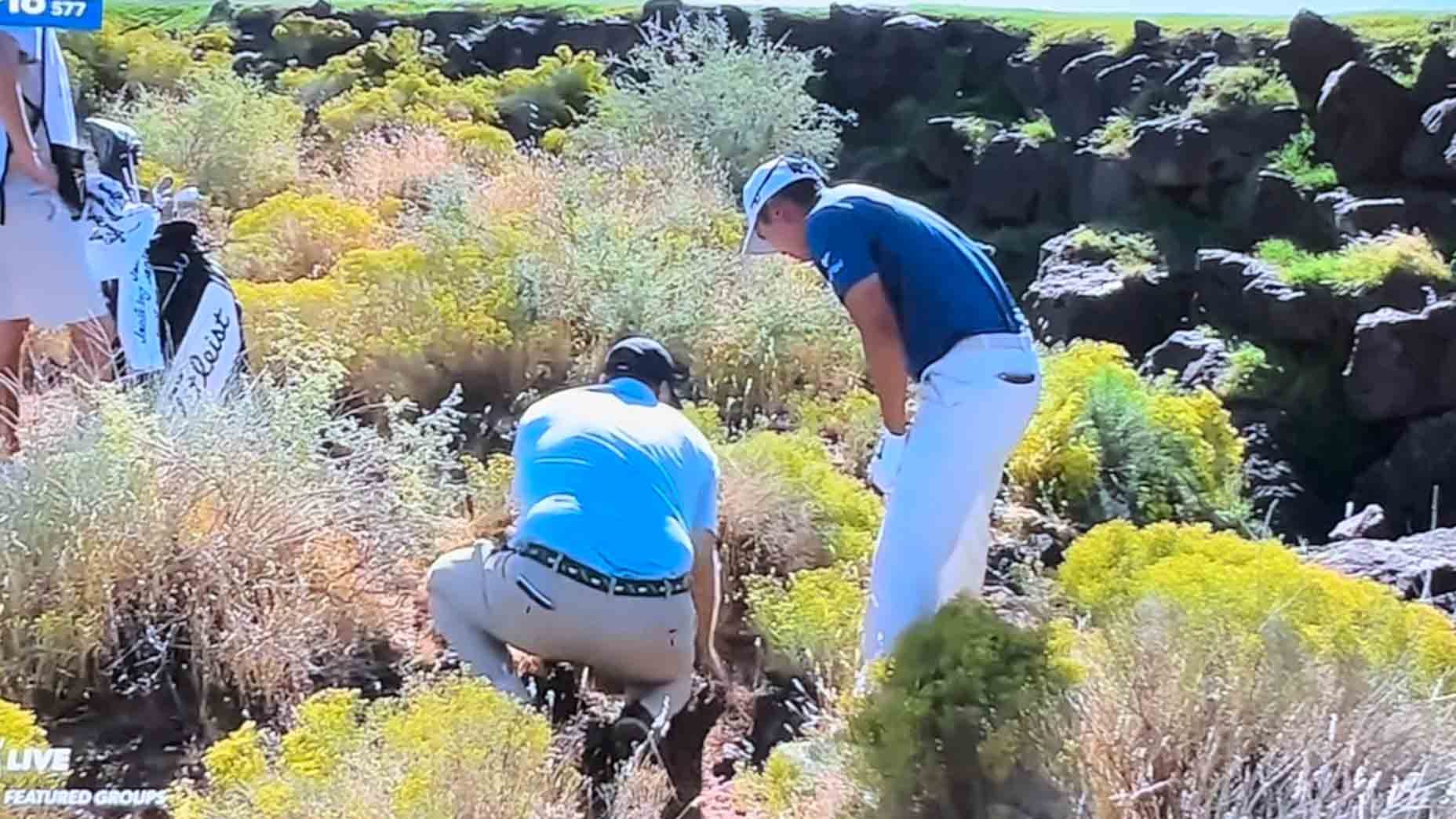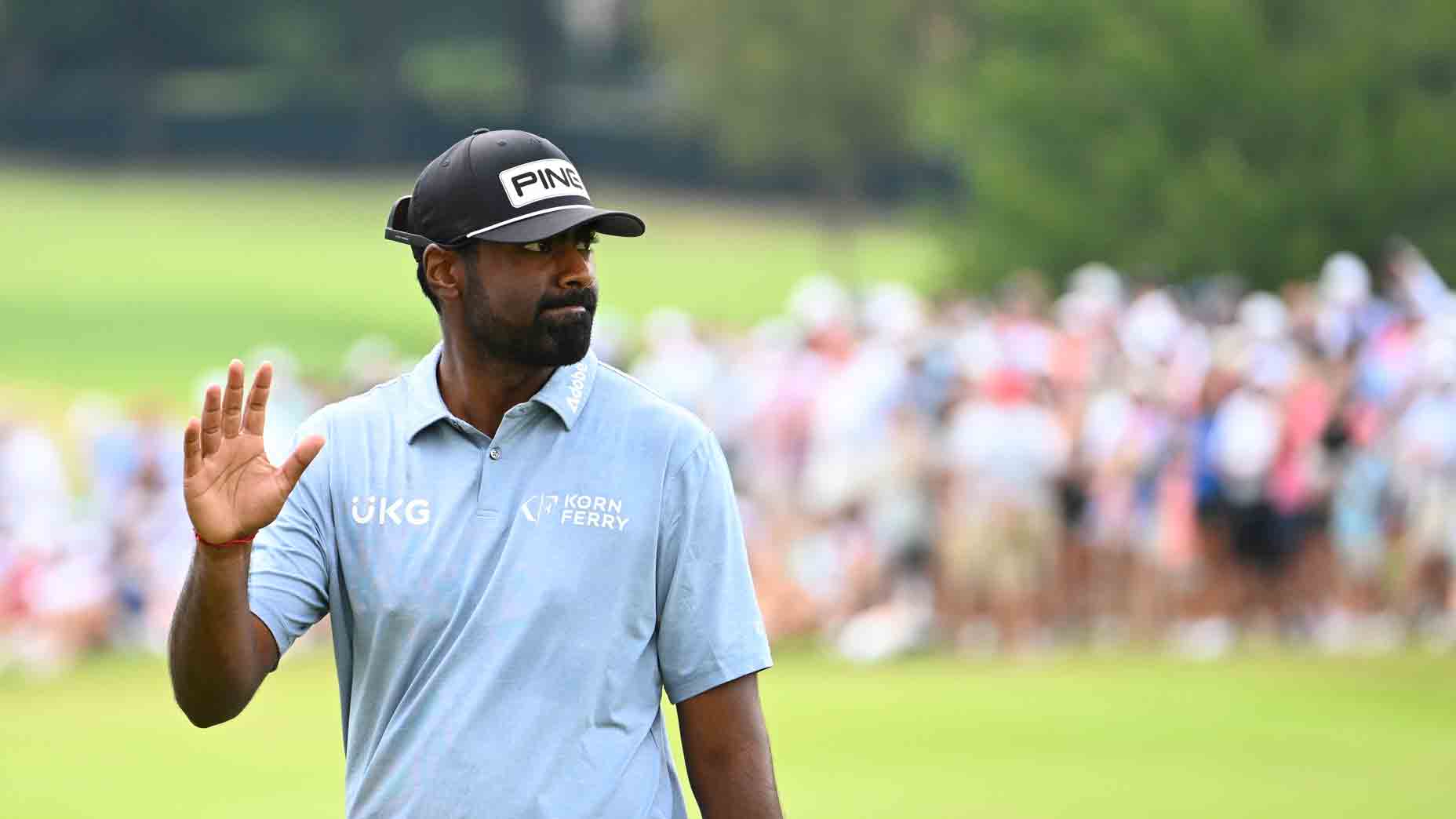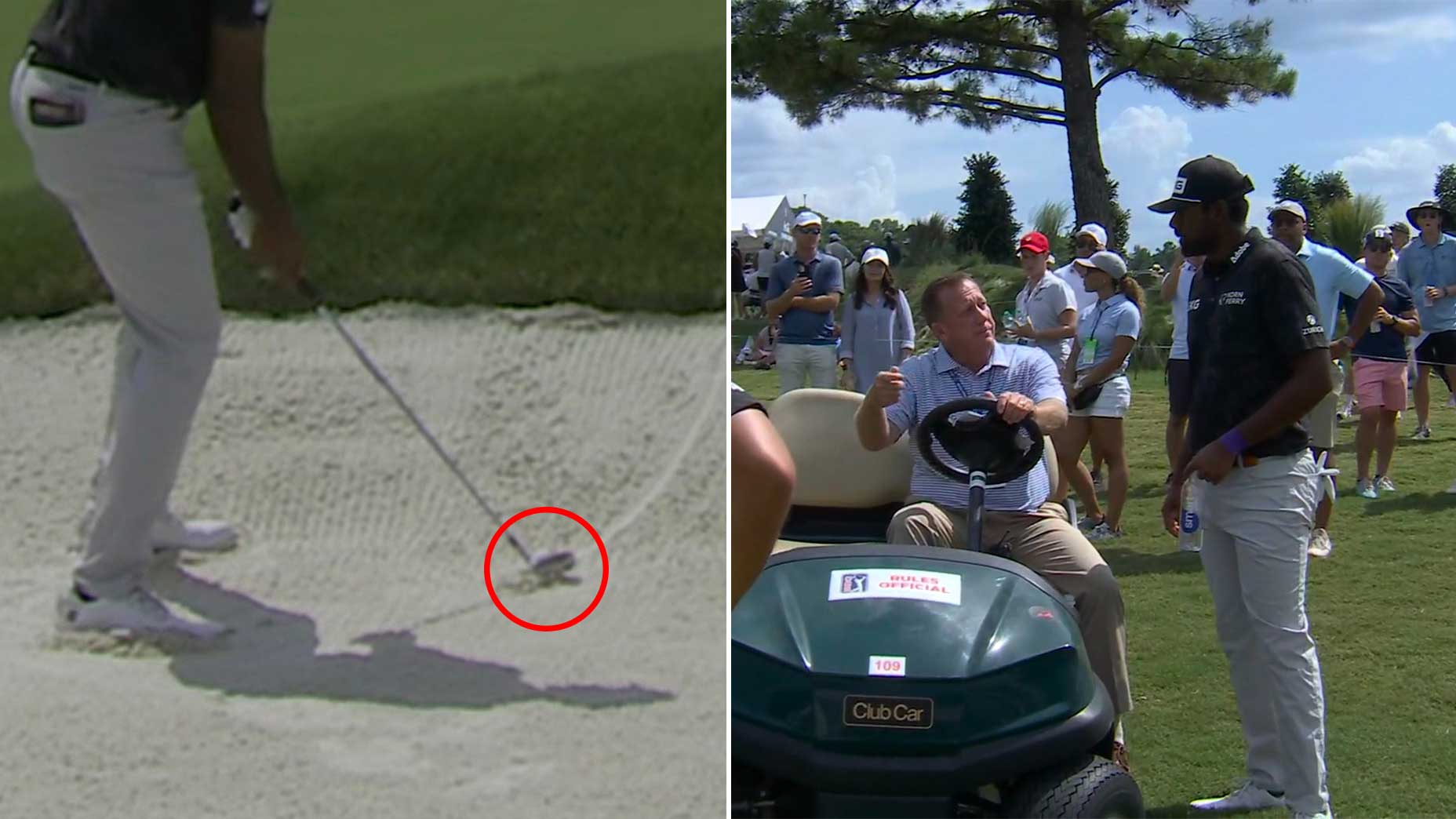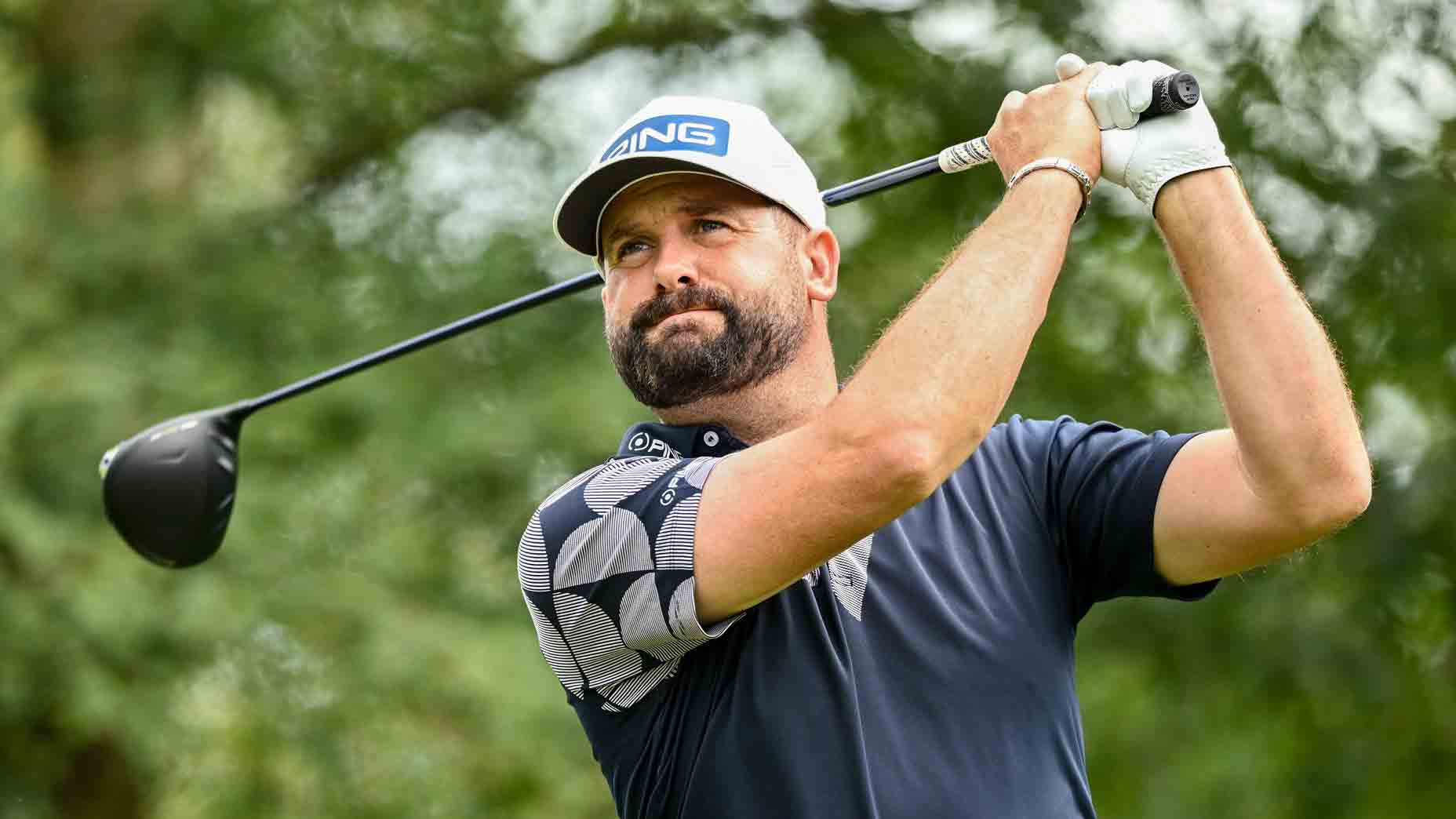Judge in Reed-Chamblee defamation suit is avid golfer and ‘absolute stickler for the rules’

Judge Alfred H. Bennett, middle, is overseeing the legal clash between Patrick Reed, left, and Brandel Chamblee.
getty images
Of all the legal venues in all the world, Patrick Reed’s defamation suit against Golf Channel and Brandel Chamblee has landed in the chambers of Alfred H. Bennett, a federal judge in Texas.
While Reed has little reason to know much about Bennett, Bennett is surely aware of Reed.
The judge is a golf fan and an avid golfer. At Golf Club of Houston, where he belongs, he has recorded 15 rounds in the past six months, and five more at other courses, according to his GHIN profile. His handicap index is 7.6, and you can bet he’s not sandbagging, friends and colleagues say.
Judge Bennett isn’t one for fudging numbers.
“He’s an absolute stickler for the rules,” said Randy Wilson, a justice in the 14th Court of Appeals who has played numerous rounds with Bennett. “He counts every stroke and putts out everything.”
So reverent is the judge toward the game’s regulations that he carries a copy of the Rules of Golf in his bag. He’s not afraid to break it out in the name of fair decisions.
“There have many times when we’ve gone deep into the weeds over the nuances of the rules,” Wilson said.
On one occasion, Wilson said, a debate arose over the proper drop after a ball crossed into a creek. Was the hazard line defined by a straight line between red stakes, or did it follow the curvature of the creek? Bennett argued for the latter, and he was right.
In another instance, Wilson said, a shot strayed far left of a fairway, landing on a grassy patch between the cart path and a fence, in such a position that taking a right-handed stance was impossible. Bennett insisted that the player could turn around and take a left-handed stance, and, because his feet would now be on the cart path, he would be entitled to relief. Not everyone in the judge’s group was buying it. But once again, the rule book bore him out.
Bennett is 57. Last fall, he competed in the Greater Houston Senior City Amateur, at Gus Wortham Park Golf Course, where he finished 47th, with rounds of 86 and 87. Though he’s not a bomber, he mostly keeps it straight, according to Ken Wise, another judge in the 14th Court of Appeals who has played multiple rounds with Bennett.
He’s an absolute stickler for the rules. He counts every stroke and putts out everything.”
That trait carries over from the course to the courtroom.
“He’s the consummate professional,” Wise said. “He plays it right down the middle with his rulings.”
A 2021 Houston Bar Association poll affirms that view, with nearly 300 respondents awarding Bennett high marks for his preparedness and impartiality.
A judge known for his balance will now review a case involving one of golf’s more polarizing figures. The defamation suit filed on Reed’s behalf seeks damages in excess of $750 million, alleging that the Golf Channel and Chamblee have been “actively targeting Mr. Reed since he was 23 years old to destroy his reputation, create hate, and a hostile work environment.”
The complaint quotes remarks made by Chamblee that have been critical of Reed’s involvement with Saudi-backed LIV Golf
Reed’s attorney is Larry Klayman, who, like his client, has a colorful reputation. It stems from his history of filing headline-making suits against high-profile figures ranging from Bill and Hillary Clinton to the comic prankster Sacha Baron Cohen. A former colleague once described Klayman as the sort of person who would “sue you for criticizing his tie.”
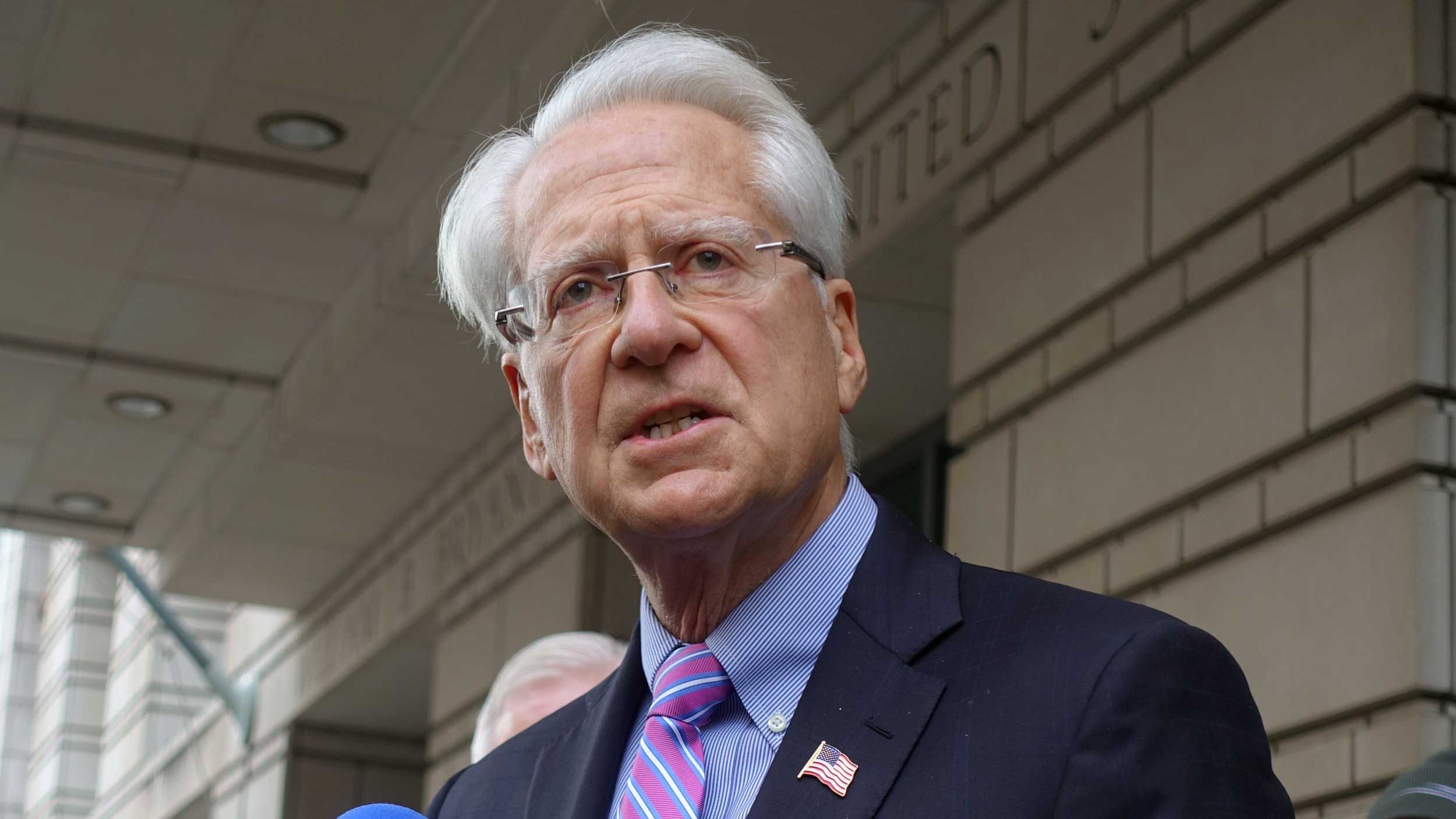
In the golf press and on social media, the filing Klayman submitted has been mocked for its preponderance of typos. Among other glitches, it incorrectly uses “it’s” instead of “its” more than a dozen times, and, in a mention of Tiger Woods, renders a possessive as “Wood’s.”
Aside from amusing the Twittersphere, such sloppiness might also irritate a judge. But it has no bearing on the merits of the case.
What matters is the law. And in that regard, the challenge for the plaintiff is even steeper than the challenges of proper punctuation. For public figures to prove defamation, they must show that they have been the victim of “actual malice” — that the person they’re accusing has knowingly made false statements about them or acted with a “reckless disregard for the truth.”
It’s a stout legal standard, and with good reason, says Meredith J. Duncan, professor of law at the University of Houston Law Center.
“In this country, we enjoy a First Amendment right to freedom of speech, and defamation law errs on the side of protecting that right,” Duncan says. “There’s a high burden of proof, especially for public figures.”
Duncan declined to speculate on the likely outcome of the suit, and Klayman did not respond to a request for comment. But, Duncan noted, the vast majority of civil cases, “around 90 to 95 percent,” never even make it to court. They are either dismissed or settled.
Attorneys for Chamblee and Golf Channel have a right to file a motion for dismissal. They have yet to do so. But they almost surely will, and when that happens, Bennett could put a quick end to the drama and toss the complaint. Failing that, the case would move to the discovery phase, with each side presenting evidence in support of its claims. At that point, the defendants could file a request for a summary judgment, asking the judge to dismiss the suit based on all that he has seen.
Among the central questions Bennett will be asked to weigh is whether Reed’s side has shown that Chamblee knew Reed wasn’t a cheater but called him one anyway. There is also the question of whether calling someone a cheater — or casting them as a pawn of an oppressive regime — is a matter of opinion, which is not actionable as defamation.
These are long asks.
To borrow from golf lingo, Reed’s complaint is a far cry from a gimme, and it now comes before a judge who is not inclined to give them.



